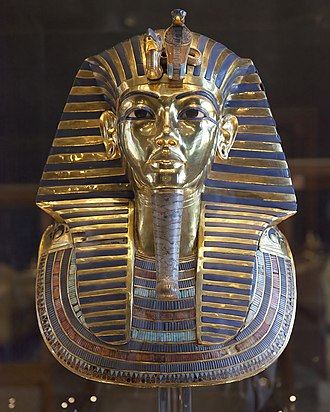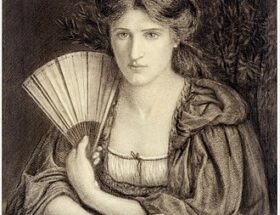
Early Years
Emmanuel Rhoides was born on June 28, 1836 in Ermoupolis, Syros, to wealthy and aristocratic parents from Chios, Dimitrios Roidis and Cornelia of the Rodokanakis family.
In 1841 his family moved to Italy due to the appointment of his father to a large trading house of the time, based in Genoa, and later due to his service as Consul General of Greece.
In 1849, while his parents had settled in Iasi (Romania), Rhoides returned to Ermoupolis, where he studied at the famous Greek-American high school Christos Evangelidis. One of his classmates was the scholar, writer and merchant Dimitrios Vikelas and together they published a weekly handwritten newspaper entitled Melissa.
In 1855, after graduating, he settled in Berlin for treatment of the problem of hearing loss that had arisen from his student years and continued to afflict him throughout his life. At the same time, he attended literature and philosophy classes.
After a year and due to the deterioration of his health, he went to Iasi and in 1857 to Braila, where he undertook the correspondence of his uncle’s (Dimitrios Rodokanakis) trading house.
He was then secretly involved in the translation of Satovriandos‘ Journey, but his uncle realized this and urged him to publish it. He published the complete translation in 1860, a year after he had settled in Athens with his family.
The following year he followed his parents to Egypt to treat his mother, but after the sudden death of his father in 1862, he returned with his mother and settled permanently in Athens.
Rhoides was determined not to pursue the commercial activities his father had left him, but to devote himself to his literary preoccupation.
Years 1866-1880
In 1866 he completed the writing of the novel Papissa Ioanna, a work through which he satirized the clergy of the Western Church during the Middle Ages. The book was rejected by the Holy Synod (aphorism that was later removed) but with its continuous five editions it managed to gain international recognition for Rhoides.
In the following years, Rhoides collaborated with French-language newspapers, and in 1870 became the director of La Grèce (Greece) and L’Independence Hellenique (Greek Independence) newspapers.
In 1873 he lost almost all of his property that he had invested in shares of the Lavrio Company and the Credit. In January 1875 and for 18 months, he along with Themos Anninos published the weekly humorous at first, then satirical, Asmodeos magazine, through the pages of which he had the opportunity to comment on the public and political life of Greece and to take an active part in it.
He signed with the pseudonyms “Theotoumbis”, “Sknipas” and similar ones, most of them single-used, since these pseudonyms seem to have been usually anagrammatics of phrases that emphasized something that had been mentioned in the corresponding article. He still criticized the party’s trade of his time, but supported the policy of Charilaos Trikoupis.
In 1877 he began his controversy with Angelos Vlachos, on the occasion of a critical text entitled “On Contemporary Greek Poetry”, in which he turned against extreme romanticism and its realization in the work of the First Athenian School and the poetic competitions of the Athen’s University.
In 1878 he was appointed curator and director of the National Library, where he worked during the Trikoupis government and was fired by the Diligianni governments.
At the same time, he appeared as a proponent of the demotic with a series of language studies, although hedidn’t use it in his texts.
Later Years and Death
In 1885 he had a serious accident when he was hit by a carriage, breaking his jaw and being unable to speak for months. In 1890 he lost his hearing for good.
During the period 1890-1900 he published most of his purely narrative work, which includes several short stories. Until the end of his life, he collaborated with many literary magazines and newspapers of the time in which he published short stories and critical articles.
He died at the age of sixty-eight in Athens on January 7, 1904.
Works
Novels
- Papissa Ioanna (1866)
Short Stories
- Story of a Dog (1893)
- Story of a Cat (1893)
- Story of a Horse (1894)
- Psychology of a Syrian Wife (1894)
- The Apple Tree (1895)
- The Complaint of a Grave-Digger (1895)
Language studies and texts
- Letters of a Man from Agrinion (1866)
- About Greek Contemporary Criticism (1877)
- About Greek Contemporary Poetry (1877)
- The Documents (1877)
- Born of Light (1879)
- Aristotle Valaoritis (1879)
- National Library in 1880 (1885)
- Sideways (1885)
- The Journey of Psycharis (1888)
- The Idols (1893)


